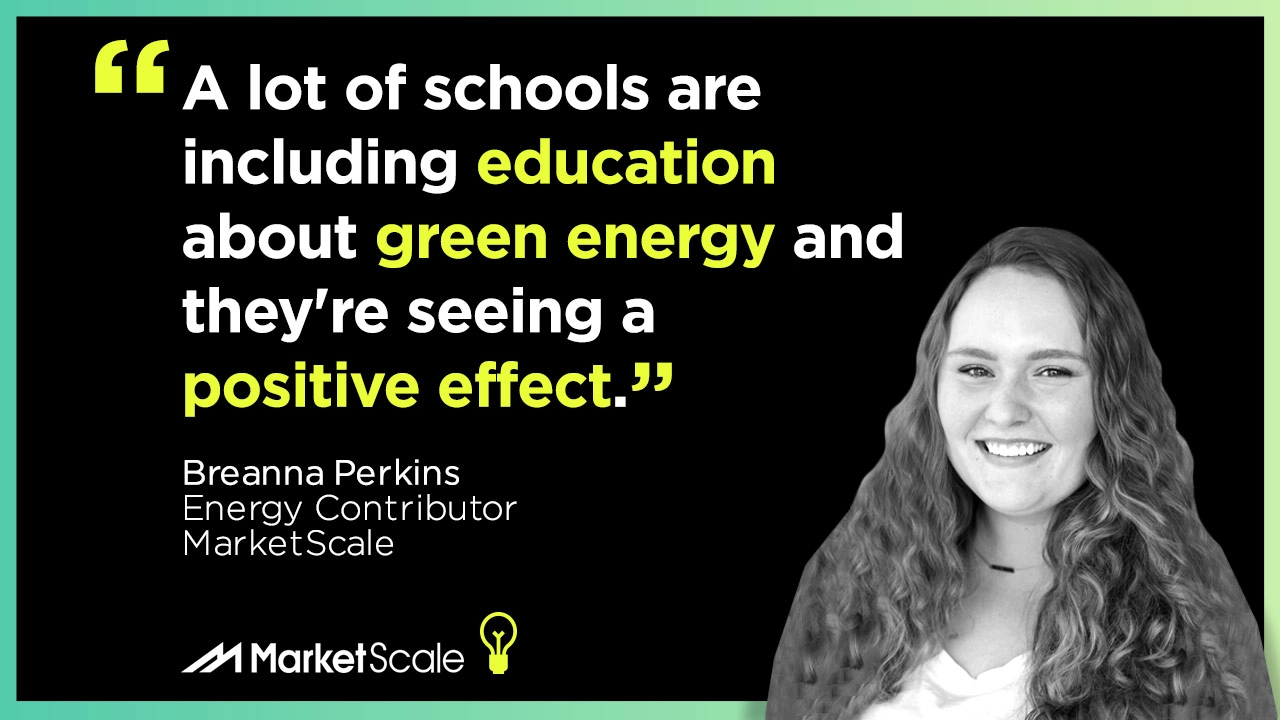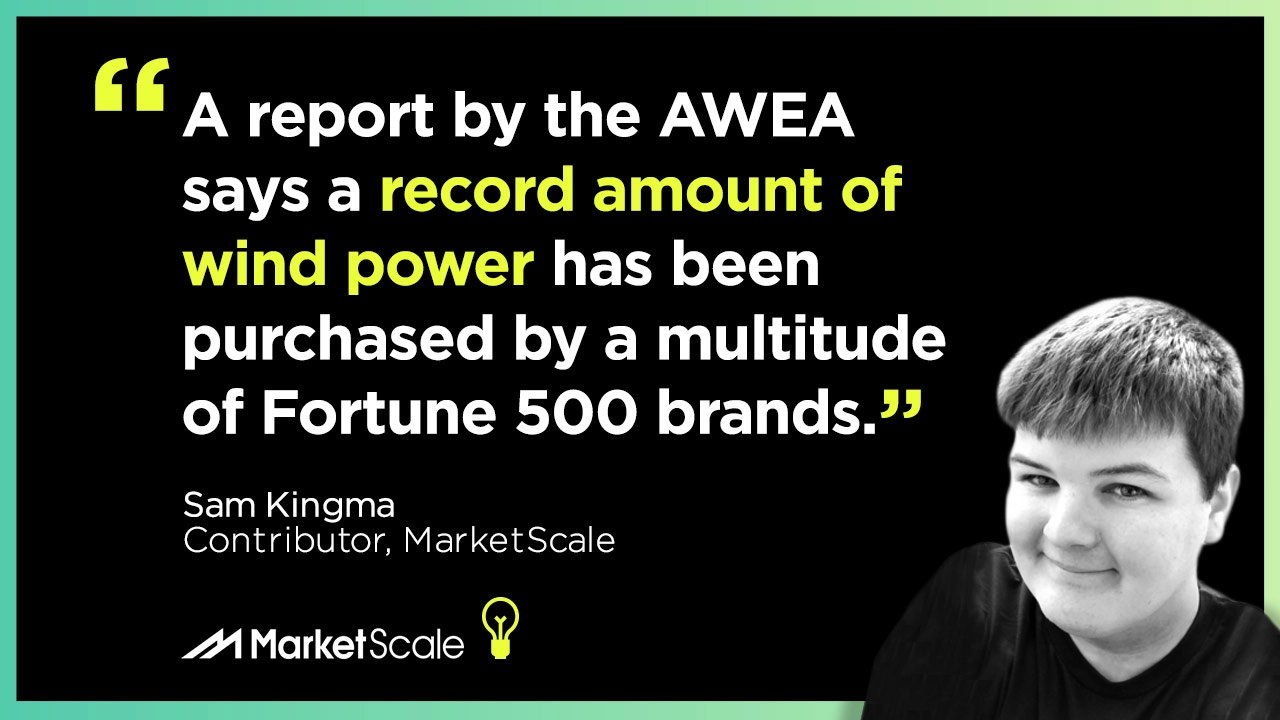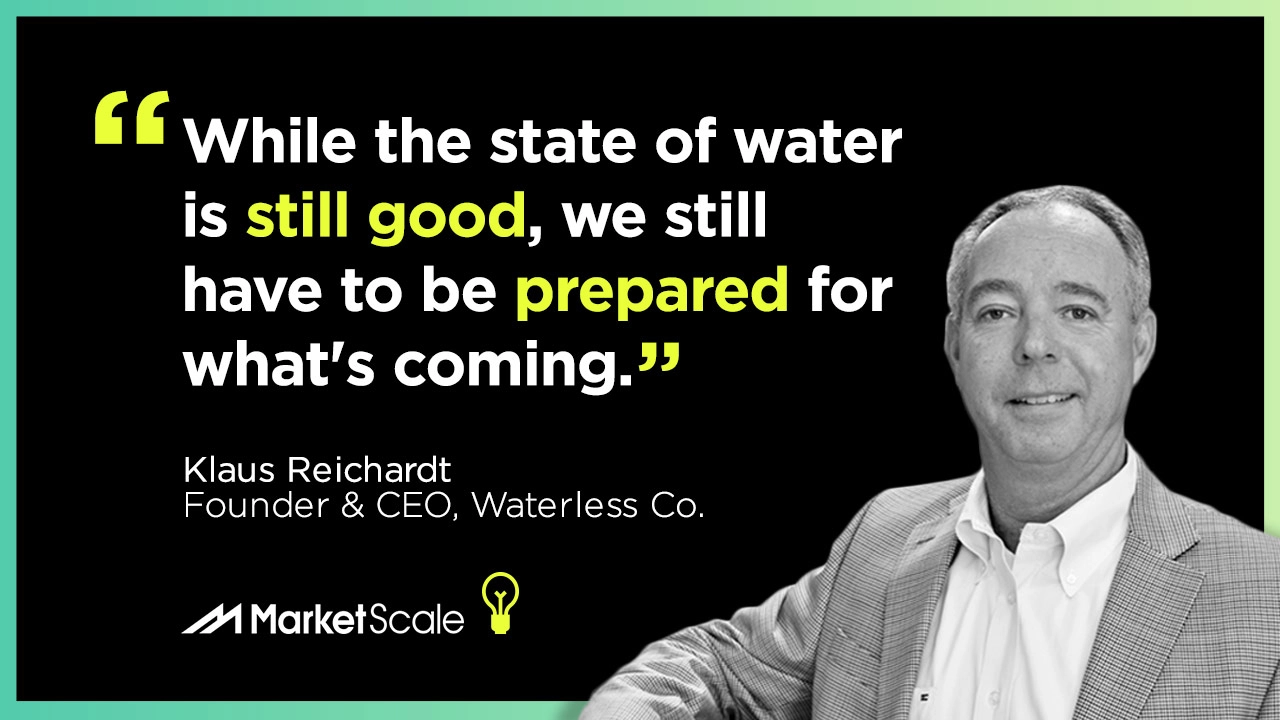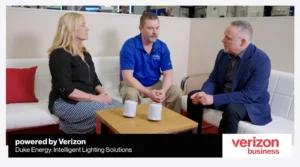MarketScale Energy 02/15/19: What Do Record Wind Numbers Mean for the Industry?
Today’s episode of the MarketScale Energy podcast takes a look at two renewable energy sources: solar and wind. As demand grows for these sources, people are coming up with creative ways to utilize this energy in a way that both teaches and saves money.
Also on this week’s episode is a look at water conservation with Klaus Reichardt of Waterless Co.
How Solar is Powering a School

MarketScale contributor Breanna Perkins joins the podcast to explain how a school is using solar panels to power the building, save money, and encourage learning. “A lot of schools are including education about green energy and they’re seeing a positive effect,” she says.
A dashboard allows students to interact with the statistics from the solar panels to learn more about how their school is saving money and benefiting the environment.
The Rising Demand for Wind

Demand is surging for wind energy, as companies continuously seek clean and renewable sources of energy. In this section of the podcast, correspondent Sam Kingma explores the market for wind as an energy source. “A report by the AWEA says a record amount of wind power has been purchased by a multitude of Fortune 500 brands,” he says.
The Economic Benefits of Water Conservation

Water is one of planet Earth’s most precious resources. We use water to keep our bodies hydrated, to clean ourselves, to water our crops, entertain ourselves, etc. And while it might seem like water is a limitless resource, the numbers say otherwise. Only 3% of Earth’s water supply is fresh, consumable water; that number could heavily decline if we don’t find ways to conserve water. Our water use hasn’t even been stretched to its full capacity; growing fire destruction in California and continuing challenges in basic sanitation across the globe put us in a tricky position on how to move forward with thoughtful, efficient water us.
Joining us today is Klaus Reichardt, CEO of Waterless Co., inventor of the no-flush urinal, a product which has helped save venues like the Mercedes Benz stadium hundreds of thousands of dollars a year. “While the state of water is still good, we still have to be prepared for what’s coming,” Reichardt said. Reichardt knows first-hand how vulnerable the world or even just the United States can be with a limited and strained water supply. He provides insight on how his waterless invention came to be, the economic benefits of being a water conservationist, and what the state of water will be in the United States in the near future.
Follow us on social media for the latest updates in B2B!
Twitter – @EnergyMKSL
Facebook – facebook.com/marketscale
LinkedIn – linkedin.com/company/marketscale









